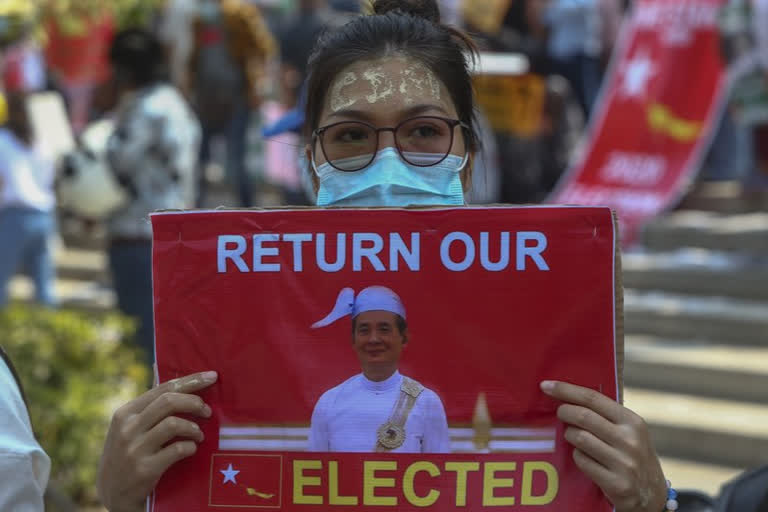Yangon:Members of a group supporting Myanmar’s military junta attacked and injured people protesting on Thursday against the army’s Feb. 1 seizure of power that ousted the elected government of Aung San Suu Kyi. At least several people were injured in the attacks in Myanmar’s largest city.
Fellow members of the Association of Southeast Asian Nations are urging Myanmar’s military to make some concessions to help ease tensions. The 10-country regional grouping views dialogue with the generals as a more effective method of achieving compromises than more confrontational methods, such as the sanctions often advocated by Western nations.
The attackers fired slingshots and carried iron rods, knives and other sharp implements.
A widely-circulated video showed one man stabbed in front of an office building near a major downtown intersection on the road to Sule Pagoda, a major venue for anti-coup protests. The number of injured people and their condition could not immediately be learned.
Read:|Facebook bans all Myanmar military-linked accounts & ads
According to accounts and photos posted on social media, the situation began with a march of hundreds of people in support of the coup. They carried banners in English with the slogans “We Stand With Our Defense Services” and “We Stand With State Administration Council,” which is the official name of the new junta.
English has been widely used for signs and posters and online memes by the anti-coup demonstrators in an evident effort to win international support.
Reports said the pro-military marchers were jeered by bystanders near the city’s Central Railway station and responded by firing slingshots, throwing stones at them and then chasing them down. Video shows pro- and anti-coup crowds at that location.
Supporters of the military have gathered in the streets before, especially in the days immediately before and after the coup, but had not used violence so openly.
Critics of the military charge it pays people to engage in violence, allegations that are hard to verify. But they were raised during earlier spells of unrest, including a failed anti-military uprising in 1988 and an ambush of Suu Kyi’s motorcade in a remote rural area in 2003, when she was seeking to rally her supporters against the military regime then in power.
Such confrontations jeopardize outside diplomatic efforts to help resolve Myanmar’s crisis through dialogue.
Read:|Two Myanmar protesters killed by police fire: Reports
Indonesian Foreign Minister Retno Marsudi visited the Thai capital, Bangkok, on Wednesday and held three-way talks with her Thai counterpart Don Pramudwinai and Myanmar’s new foreign minister, retired army colonel Wunna Maung Lwin, who also travelled to Thailand. The meeting was part of Marsudi’s efforts to coordinate a regional response to the situation in Myanmar.
